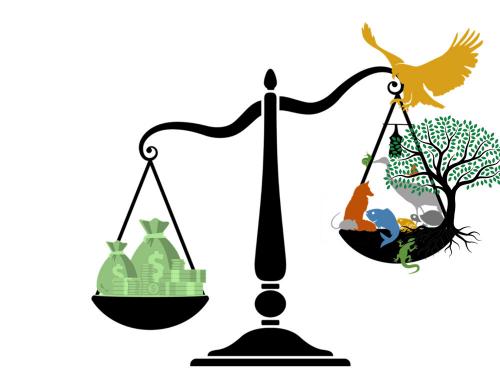https://www.fidh.org/en/issues/globalisation-human-rights/human-rights-a...
As the triple planetary crisis - climate change, biodiversity loss and pollution - intensifies, the environment and its protection must be at the forefront of legal developments at all levels of governance. This necessity is slowly beginning to be taken seriously, and a number of states have already put measures in place, including legal measures, to protect the right to a healthy environment and environmental defenders on the front line.
The Escazú Agreement is a pioneering agreement in this respect. It is the “first treaty on environmental matters” in the Latin America and Caribbean region and places special emphasis on the protection of environmental defenders, particularly through the provisions in Article 9. Signed by 24 countries, it came into force in April 2021 and has been so far ratified by 15 countries.
2021 also marked a turning point at the United Nations when the Human Rights Council recognised the right to a clean, healthy and sustainable environment as a human right in its Resolution 48/13. Less than a year later, on 28 July 2022, the United Nations General Assembly recognised this right as a human right by adopting Resolution 76/300. FIDH welcomes this vote, described as “historic” by António Guterres, which marks a further step towards the potential future development of international legal instruments to defend and protect the environment.
Major breakthroughs in the recognition of the right to a clean, healthy and sustainable environment
Civil society and communities have also mobilised around this crucial issue. For several years now, FIDH has been campaigning for recognition of the right to a clean, healthy and sustainable environment as a human right. In September 2021, alongside several of its member organisations, it launched its international campaign #SeeYouInCourt, aimed specifically at supporting and working alongside communities in legal actions against the environmental and human rights abuses of companies. A number of cases have been launched around the world as part of this campaign.
Unfortunately, political decisions do not always translate into concrete and enforceable developments. The UN-level resolutions mentioned before mark important steps towards better environmental protection. However, they are not legally binding texts that would oblige their signatories to respect, protect and fulfil the right to a clean, healthy and sustainable environment. Furthermore, transposing United Nations General Assembly Resolution 76/300 into a legal framework has proved more complex than initially anticipated and has not yet been achieved due to political opposition from individual states.
As one example, in a resolution adopted in April 2023, the Human Rights Council urged member states to “establish, maintain and strengthen effective legal and institutional frameworks to regulate the activities of public and private actors in order to prevent, reduce and remedy harm to biodiversity and ecosystems, taking into account human rights obligations and commitments relating to the enjoyment of a clean, healthy and sustainable environment”. Yet, the Council’s call for action has been met with skepticism by states like China, Australia and the United States. They have expressed caution about this new resolution and are reluctant to be legally bound to respect the right to a clean, healthy and sustainable environment, in particular through the Universal Periodic Review of States as proposed in the resolution.
Challenges in the transition from the political to the legal sphere
Reluctance is also still present within the European human rights system. The Council of Europe’s Head of State Reykjavik Summit on 16 and 17 May did not result in a strong call for the recognition of the right to a clean, healthy and sustainable environment as an autonomous right. FIDH had mobilised alongside other human rights and environmental organisations to ensure that. States missed the opportunity to issue a strong call in order to formally recognise the right as an autonomous right under the European Convention on Human Rights. Yet, they did commit to strengthening their work on “human rights aspects of the environment”. FIDH pursues its work alongside civil society organisations to ensure that the Council of Europe uses effectively the law and its enforcement system as a tool to protect the environment.
FIDH welcomes the progress made in the recognition of the right to a clean, healthy and sustainable environment, and urges States to adopt effective legal mechanisms to guarantee this right. To achieve that would mean to make the next World Environment Days days of celebration and tangible progress.











Add new comment